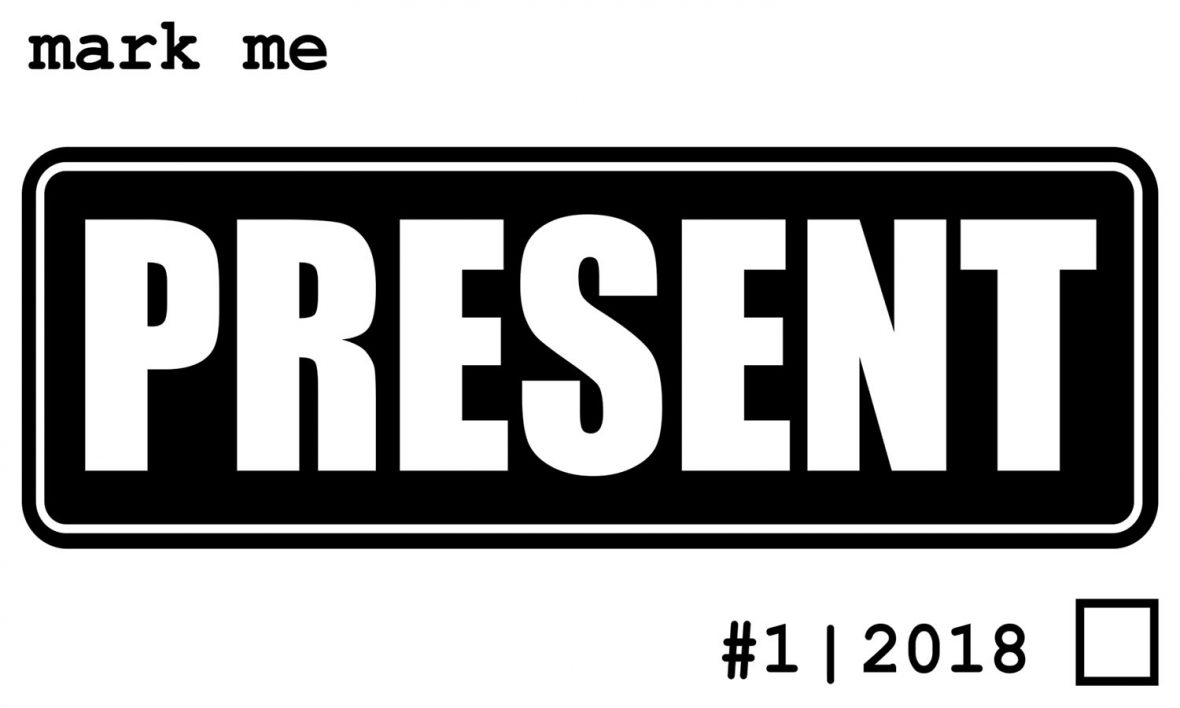
Für die deutsche Version, bitte klicken Sie hier.
MARK ME PRESENT – How it began?
The idea is born from a shared wish to invite under the same roof art and art education and provide their dialogue with an adequate space.
MARK ME PRESENT started with our commitment, Luiza Mogosanu and Andreas Poppmann, to bring the gripping stories, experiences and creations of our students of various ages and backgrounds into the spotlight. This wish was met by a momentous invitation from the director of the exhibition space, “Pyramide” in Berlin, Mrs. Carolina Winkler.
As it was clear that the new worlds and codes that the young generations are shaping – whether they are young teachers or students – constitutes the beating heart of our project, another momentous meeting, with our colleague Carolin Pflüger made possible to engage in our project, various students in a colloquium lead by the prof. dr. Otfried Scholz. The project is evolving ever since into a steady growing network that joins together individuals with diverse biographies and experiences – protagonists from the academic milieu, professionals from primary/secondary schools, self-employed artists and students that wish to share their visions and discuss about their work premises.
MARK ME PRESENT – Our vision
The globally-connected and rapidly changing world we are living in, entails a profound reshaping concerning the way we think of learning and teaching.
The paradigm shift that our society is undergoing, from exposing ideological biases of history[1], to the drastic challenge of the conventional heteronormative beliefs about the nature of gender roles and gender identity, to the emergence of decentralized and sustainable economies, there is an essential change of ideas going on, that motivates us to reflect, with a view to the future, upon the content and the purpose of our school curriculum and upon how we can empower, qualify and inspire the young generation of teachers for their complex job.
What makes the process of education to be one of the most transformative and engaging experiences – ideally for both sides, the learner and the teacher?
The resourcefulness of researches that are being done in this field – the Finnish education project HundrED – being one recent example – upholds education as a domain with a remarcable potential of creativity and innovation.
To engage with the process of teaching means as well to grasp the zeitgeist of the digital data driven era and take in account its unparalleled democratization and accessibility of the information. We cannot really imagine anymore, assigning the teacher with only the intermediate role between a segmented chunk of knowledge and the learners. Just as we cannot imagine the function of teaching reduced to the indiscriminate fulfilling of tasks.
In Noam Chomsky´s words, the goal of education is to help the learner get to the point where she/he can learn on her/his own. The essence of human nature, he says, is to create, inquire independently, in solidarity with others, and those are capacities that are ought to be cultivated by the schools, in any way[2].
If we believe that the artistic education in schools is meaningful, what role should we assign it to guarantee its relevance in the lives of the future generations?
That arts are a drive towards the individual growth and an incentive to the community progress is substantiated in many ways, one of them being its intellectually formative potential. Participating to an artistic process means above all, interrogating, inquiring, disputing, provoking, experimenting, associating a conglomerate of data, well, genuinely challenging the normative thinking. If Beuys´s activism should be for anything distinguished, then it might be for reshaping our perception towards the complexity of the individual´s modus operandi in relation with his creativity – therefore, conceivably, it might inspire us to rethink our definitions for art.
How does the art education evolve in the light of reformative thoughts and the digital technology and what is the nature of the dialogue between pedagogy and art – are further questions we would like to formulate during our panel discussions.
MARK ME PRESENT called on artists, students, university professors and art teachers/educators, to discuss and analyze with us, during the time period from 7th September to 9th October, the art´s context in its complexity of facets.
(Luiza Mogosanu, July 2018)
[1] See for instance, Michel Foucault, The Archaeology of Knowledge (L´archeologie du savoir), 1969; Trans. A.M. Sheridan Smith. London and New York: Routledge, 2002
[2] Noam Chomsky interviewed by Arianne Robichaud, interview March 26, 2013; Radical Pedagogy (Volume 11: Issue 1; Winter 2014; ISSN: 1524-6345)
